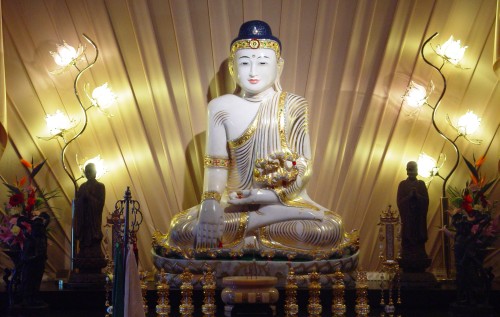 Opening the hand
Opening the hand
Opening the mind
Opening the heart
In Buddhism, Dana is the act of giving. Dana takes many different forms.
We practice Dana when we support the Sangha with gifts of material wealth, and with gifts of time and talent. Dana is also the gift of the Dharma, as we receive it from our teachers, and as we model the Bodhisattva Way for the world. We practice Dana when we care for our elders, and when we comfort the sick, and aid the depressed and the troubled. We can practice Dana to the world by feeding the hungry, by working for justice, and even by becoming an organ donor.
In the spiritual realm, we practice Dana when we make offerings to the Buddhas and to all he saints and sages. When we make offerings with a respectful mind, we create affinities with the Three Jewels and the saints and sages, increasing our blessings and merits.
As we give, we must cultivate a mind of respect, compassion, and purity. To give without any notion of the giver, the receiver, or the gift is to achieve the “Triple Emptiness,” which is the true perfection of charity.

